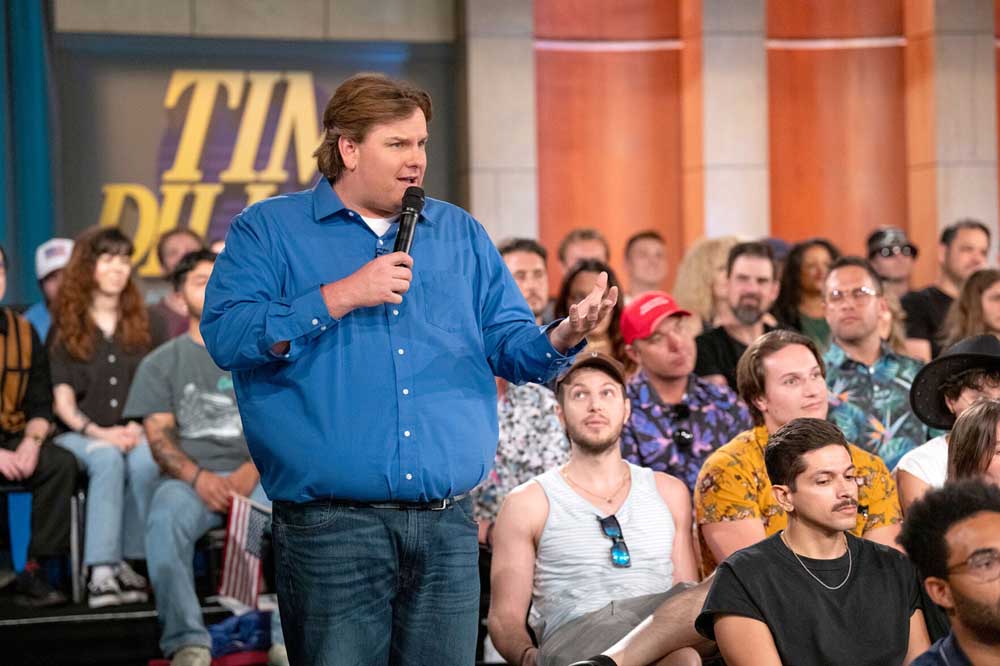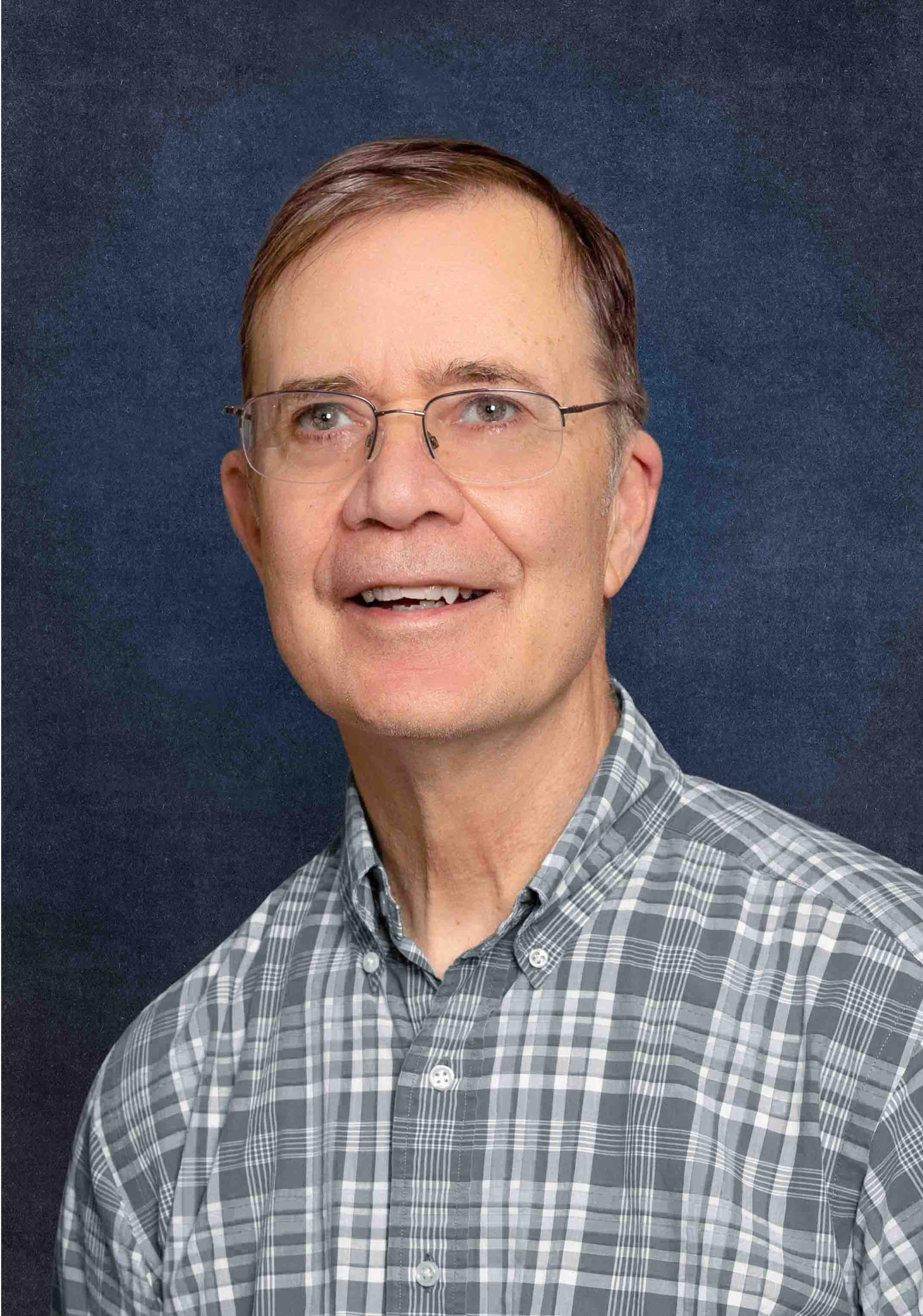New Netflix talk show special is nostalgic, timely trash TV
Published 4:09 pm Thursday, October 3, 2024

- Comedian Tim Dillon hosts the new Netflix comedy talk show, “This Is Your Country. (Greg Gayne/Netflix/TNS Photo)
When Netflix approached comedian Tim Dillon about doing a comedy special timed to election season, he thought about a few options on how to approach it. He could make some run-of-the-mill stand-up special that would be quickly forgotten post-election day, or maybe making some derivative version of “The Daily Show.” Or he could do something a little more original by adding a modern spin on a classic pop culture pillar of the ‘90s — daytime talk shows.
Choosing the latter format as his guide, the Long Island, New York-bred comedian may have found his true calling on his latest venture, a 47-minute surreal-yet-so-real romp through modern culture while doing his best version of a young Jerry Springer. In front of a studio audience, the talk show-inspired comedy special, “This Is Your Country,” dives into unscripted topics ranging from immigration, OnlyFans and the demise of NFT trading.
Trending
The real, everyday people Dillon picked as guests and a lively crowd make it a timely bit of trash TV that America needs right before the November election. Recently, Dillon spoke about how the special was born, his commitment to finding the realest people out there to sit in the hot seat and what their stories tell us about America. This conversation has been edited for length and clarity.
Q: Of all the formats you could use to create a comedy special, what made the ‘90s era daytime talk show the best fit?
A: The conversation with Netflix was never like to do a comedy special. The conversation was “What do you want to do?” Netflix wanted something from me that was a unique, unscripted thing. Initially, they bought something political and I wasn’t really into that, and I wanted to bring back ‘90s trash TV, which is what we did, and it’s a ‘90s trash TV talk show, so I don’t know if I would call it a comedy special. I mean, they’re gonna call it that on Netflix because I don’t think they have a term for it, but that’s kind of what it is.
Q: The trash TV talk show angle definitely resonates with a lot of us who grew up watching all that stuff too.
A: Right, so we want to bring it back. It ends up being a better satire of America than a political special or anything like that, doing something at a convention or doing some kind of “Daily Show” rip-off. I think it ends up being really good satire of America, because they’re all real people that have come to talk about things that are real cultural themes and there’s no script, and we just basically don’t know where any of it’s going to go. To me, that’s what makes it fun, is not really knowing what’s going to happen.
Q: It sounds like it also functioned as a real talk show in that actually you went and found real people that had a story or drama going on?
Trending
A: Yeah, and [we] brought them on. We shot a bunch of segments and we only used five because we thought they were the most interesting and the funniest and the best. That’s the thing — not knowing what’s going to happen is what I like about the format that we chose.
Q: What were your earliest memories of growing up with talk shows?
A: I just remember my mother yelling at my father because he was watching this — as she called it — garbage. She’s like, “Stop watching this garbage, your son is getting off the school bus, walking into the house.” And my father said OK, but would turn them on anyway. I remember just growing up with that tabloid, trash, fun, insane circus of daytime TV. Obviously, we have a lot of reality TV now, but daytime television in the ‘90s was truly unhinged. It was the beginning of fringe in a very real way. It was the beginning of a lot of the things that you see now on TikTok or on YouTube or whatever.
Q: There’s also a skill that talk show hosts have in asking questions that allows their guests to really open up in front of an audience. How does that relate to what you do as a comedian when doing crowd work or working through material that will get your crowd engaged?
A: The difficulty of doing something like this, especially for someone like me who does a podcast solo, is that I’m used to doing a monologue that’s off the cuff, but I rarely have guests. This project was about learning to be a good interviewer. It’s learning to work with the crowd, which I know how to do from stand up, but it’s learning to integrate all of those different elements into it to make it feel it’s got to flow. And the crowd has to be into it. The people on stage have to be into it. You hope the people watching it, obviously, are into it. So you got to make sure that not only is it entertaining in the room and interesting in the room, but that that’s going to translate when it’s on Netflix.
Q: I mean, it helps when you have couples like the people you start the show with — the guy who does OnlyFans content where he massages [women with Brazilian Butt Lifts] for a living, meanwhile his girlfriend has no idea. I think it’s natural for some people to be shocked about guests on your show who actually live like this.
A: I’m confused because everyone keeps asking if these are real people. I’m wondering if anyone has been outside in the last few years. I mean, what a lovely view of the country then all of you must have. But to me, it’s the least shocking thing ever because that’s a job — he massages BBLs for a living. That’s his gig. He was a really nice guy, and he had an issue with his chick, and he wanted to tell her some things. Then it is funny because people watching go, “Wow, are these real people?” And I go, “Yeah, that’s all real people.” It’s the United States.






